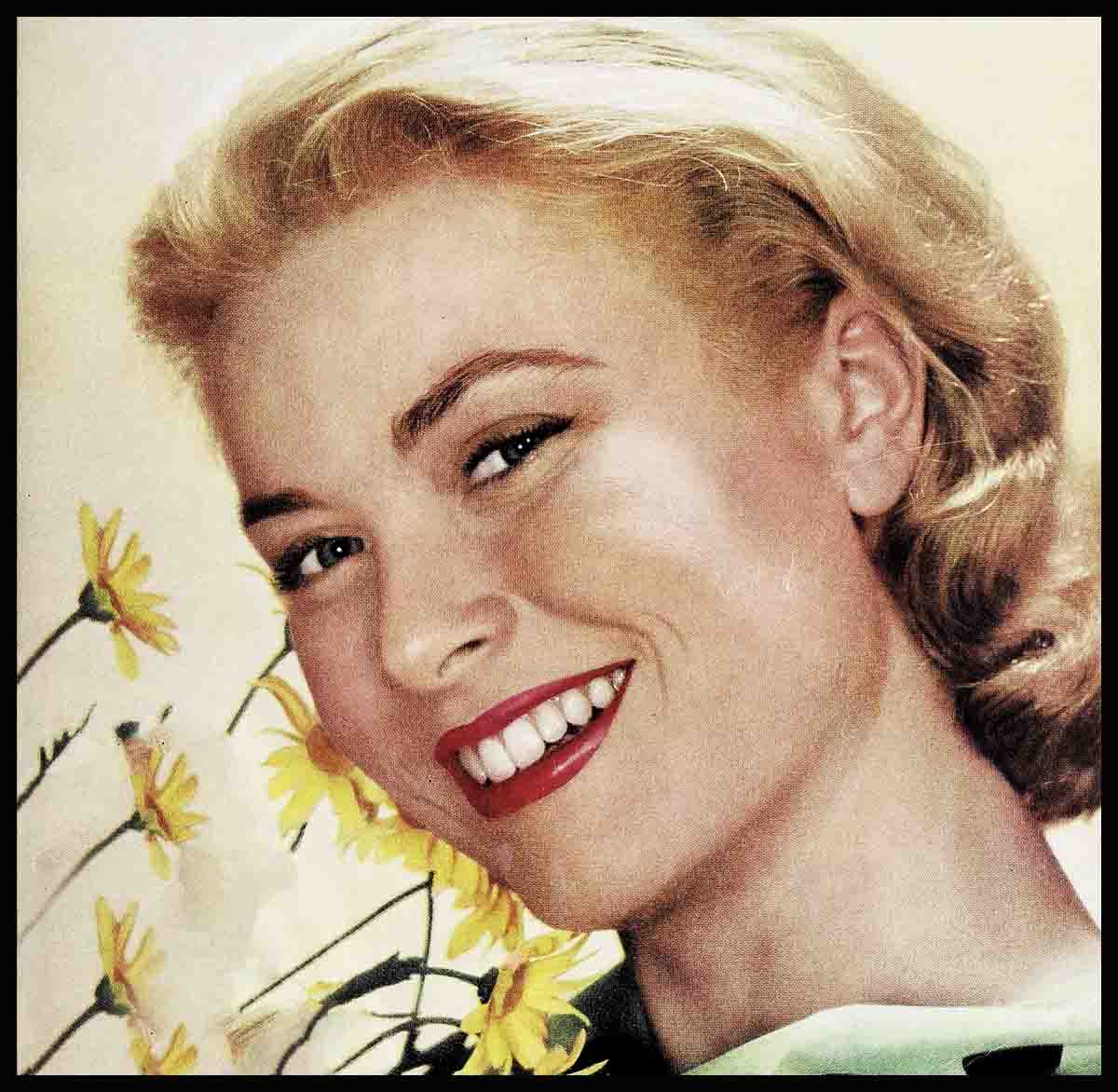
A Prince . . . Catches A Star—Grace Kelly
In the midst of official announcements and high protocol, Grace Kelly’s father told the news in a few simple words a romantic world could treasure: “You can see they’re in love.”
Even more eloquent were the expressions on the faces of the couple them- selves as they met the hundred reporters who hurried to the Kellys’ gracious white-trimmed, red-brick colonial house on quiet Henry Street in East Falls, just outside Philadelphia. Grace’s smile held a new radiant tenderness as she displayed her engagement ring.
And the Prince who sat beside her beamed with a pride which had nothing to do with his ancient house and many titles, for he had just found a new and more meaningful one. He was now Grace Kelly’s future husband. Of all the hopeful men who had sought this reigning beauty, he was the lucky one. Rainier III, Prince of Monaco, happily told the world he had literally caught a star.
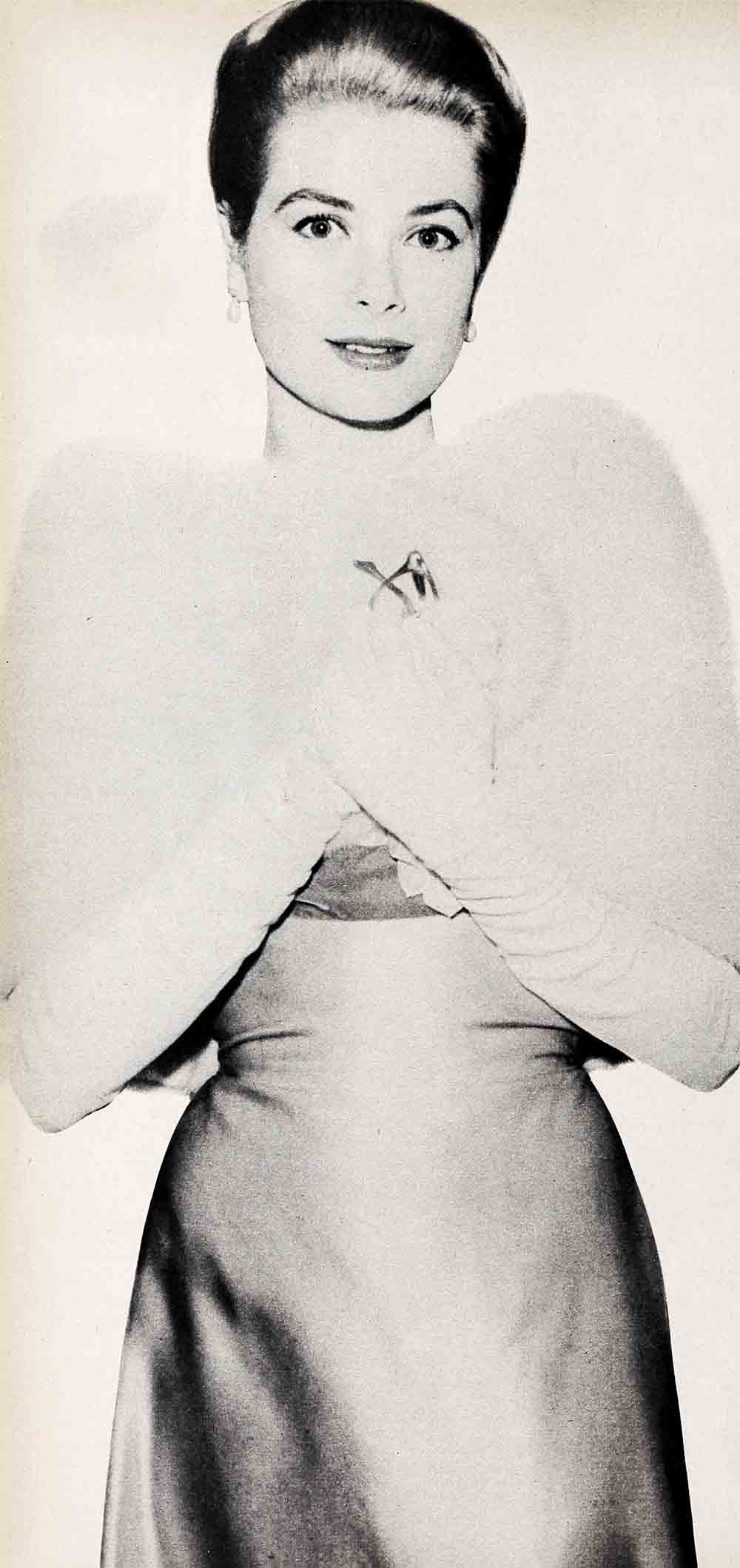
That he had secretly wooed and won her was a story to capture the imaginations of people everywhere, for even before they met, each was an outstanding romantic figure.
Grace’s story, perhaps, was better known, for she has, in effect become not only a Princess of the Screen, but also the glowing symbol of do-it-yourself success. Although born well-to-do, she chose to stand on her own feet while learning to use her great talents as an actress. While studying in New York, she earned her own way with modeling jobs and television parts. In fact, she did so well that she had an enviable income of $400 a week before she ever left for Hollywood.
Success, people learned, was a Kelly family habit. In two generations they have, among them, acquired a Pulitzer Prize, two Olympic championships and a couple of fortunes. Grace’s own Academy Award, was, from her point of view, only a logical thing to be expected from a Kelly of Philadelphia.
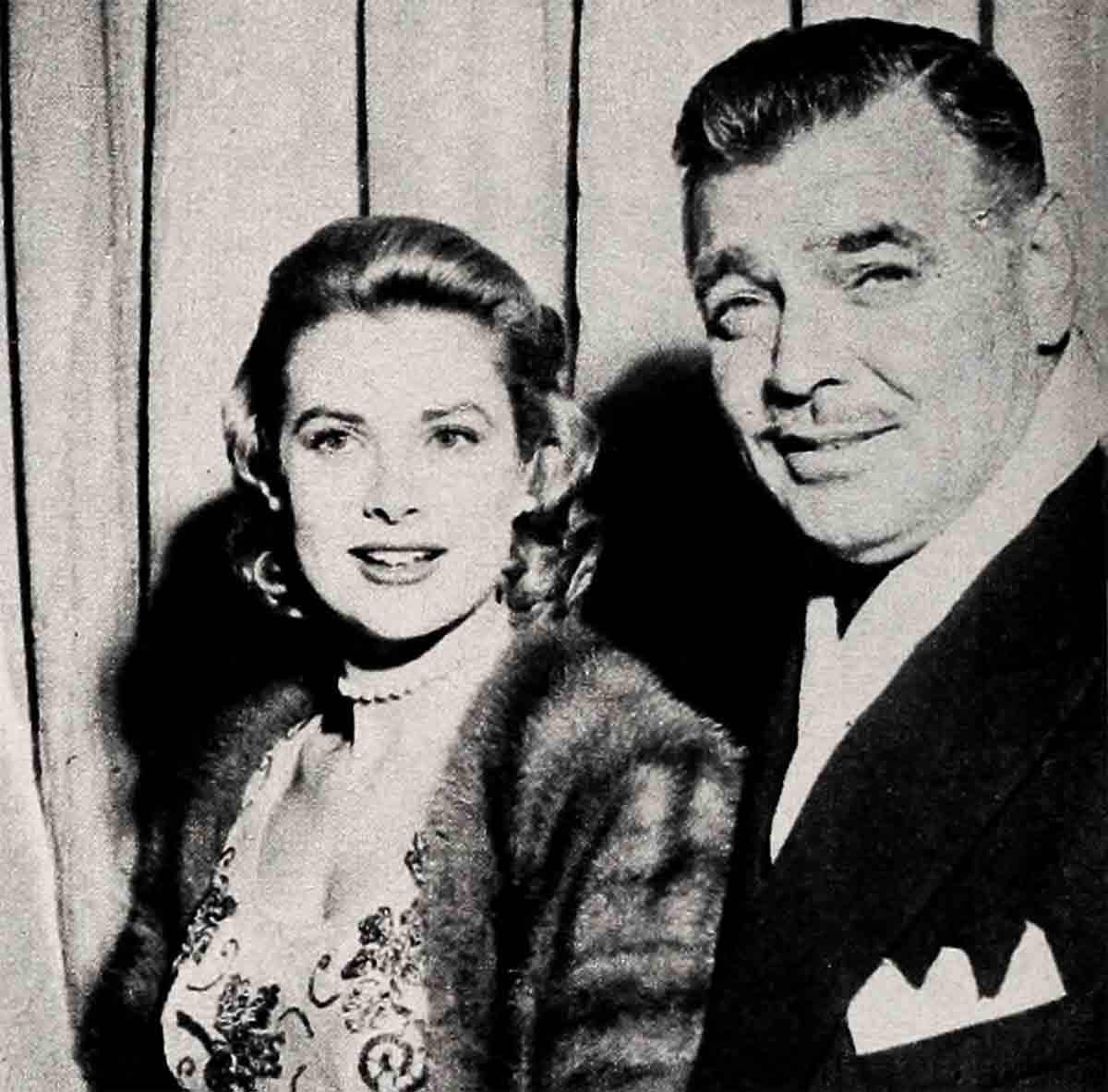
But even more intriguing to her admirers, was Grace’s elusive attitude toward love. One by one, the names of each of her leading men have been coupled with hers, for people seemed to want to believe that the wonderful magnetism they witnessed on the screen carried over into private life.
The King himself, Clark Gable, was the first. They were together in Africa during the filming of “Mogambo,” and later Gable made a few pretty speeches about Grace’s loveliness, her talent and his liking for her, but never once did either use the magic word “love.” After that, from Bing Crosby to Jean Pierre Aumont, Grace found her name linked romantically with star after star.
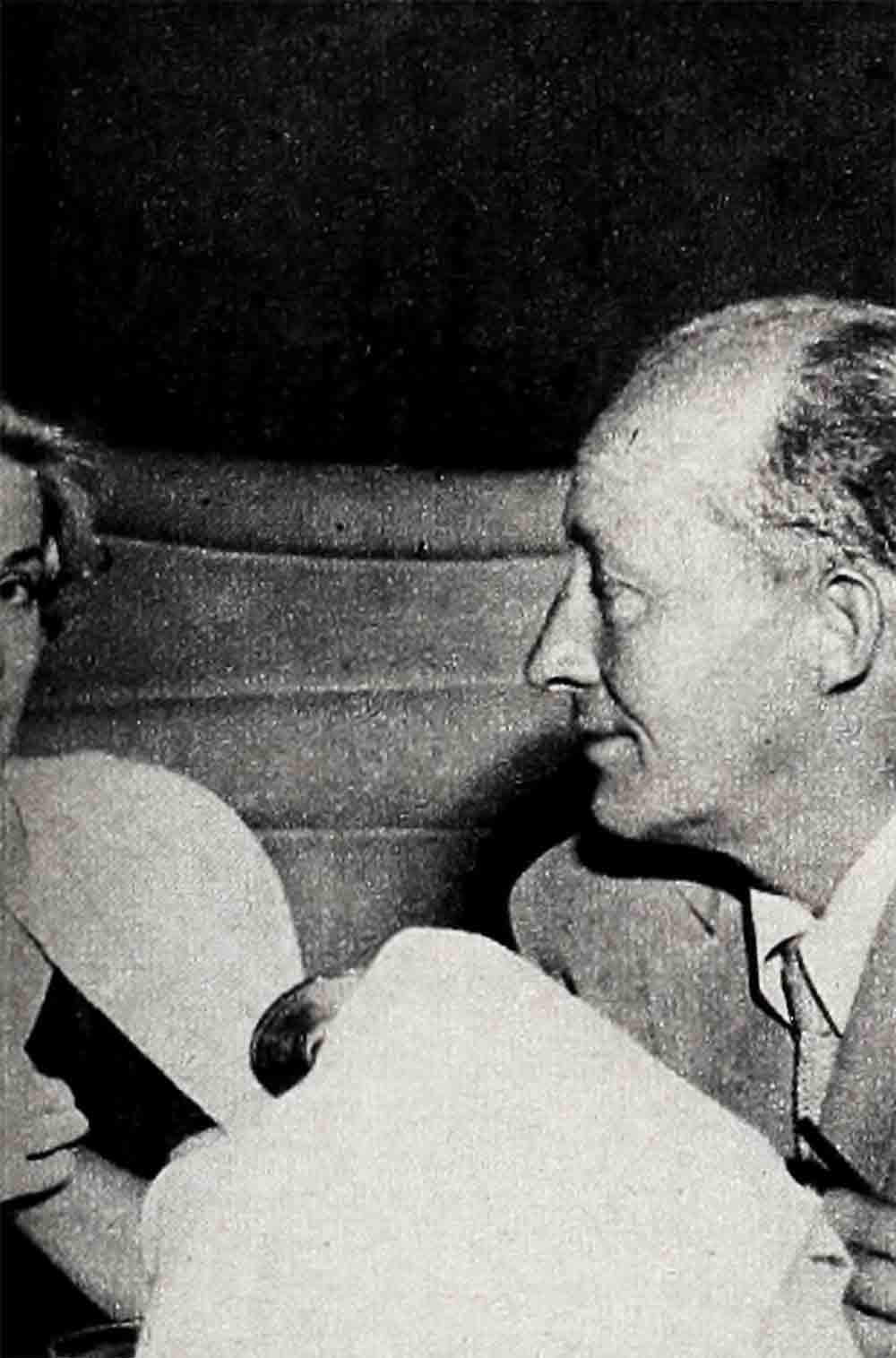
On the other side of the Atlantic, Prince Rainier also held the focus of romancers. Some called him “the world’s most eligible bachelor” for, although he ruled only a few thousand subjects in the tiny principality of Monaco and was a “Serene Highness” rather than a “Royal Highness,” he did have what one reporter called “a rare thing in the prince business these days—a working throne and a good supply of wealth.”
He also had, in good repair, a 295-room picturesque pink palace on the blue Mediterranean, a collection of sports cars and motorcycles, three yachts, a private zoo—and a problem.
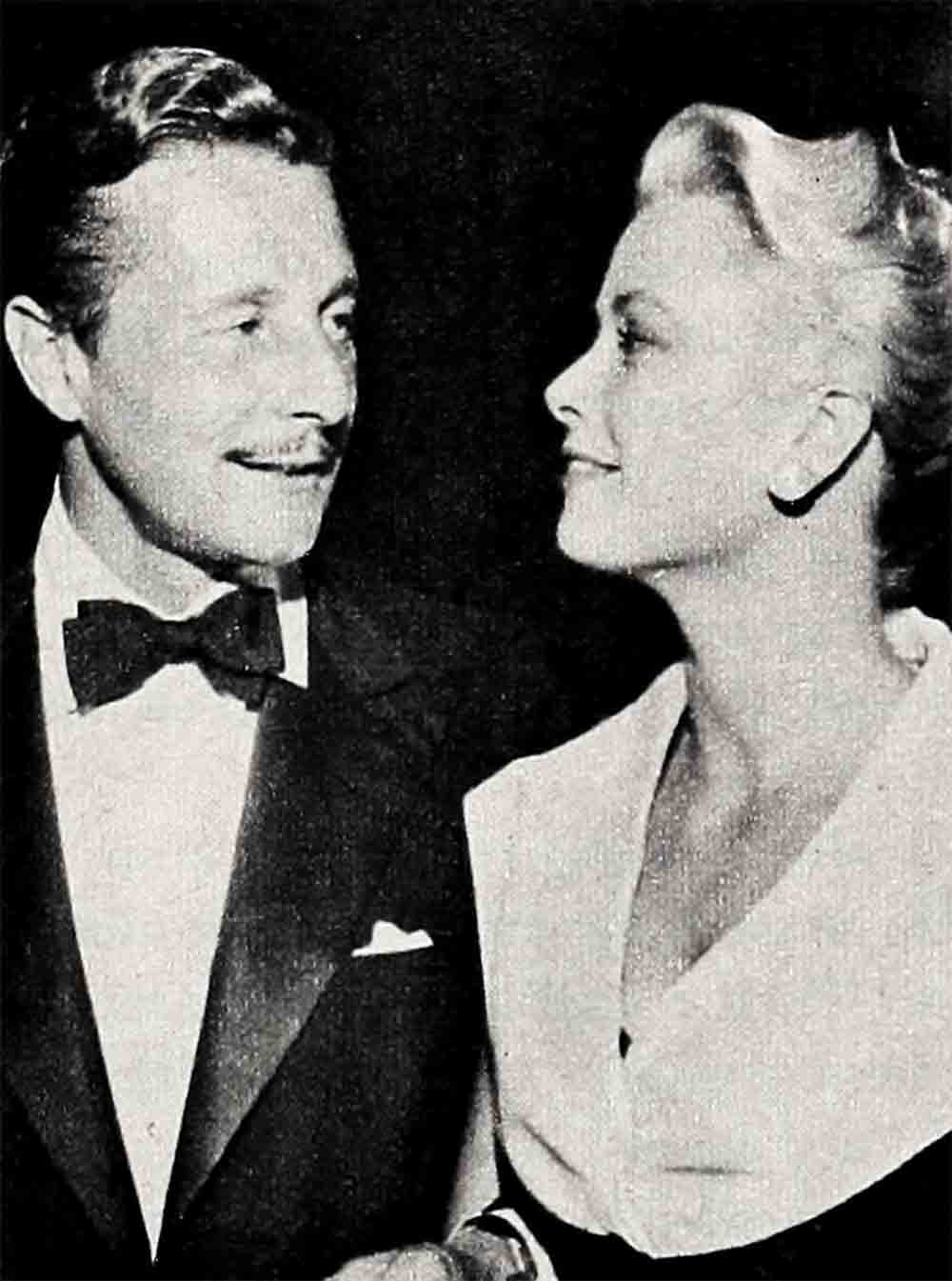
The problem worried his people more than he—up to the age of 32—permitted it to worry himself. The citizens of Monaco called Monegasques), at present, enjoy freedom from both taxes and military service. Revenue from the famed and fabulous gambling casino at Monte Carlo supports the government, and the “army” is a constabulary not as large as an average city’s police force. However, by the terms of a treaty made with France during World War I, should Rainier die without an heir, his country would then revert to France and his people would have to pay France’s taxes and help fight France’s wars. Both blood and money depend on Rainier’s taking a wife and starting a family.
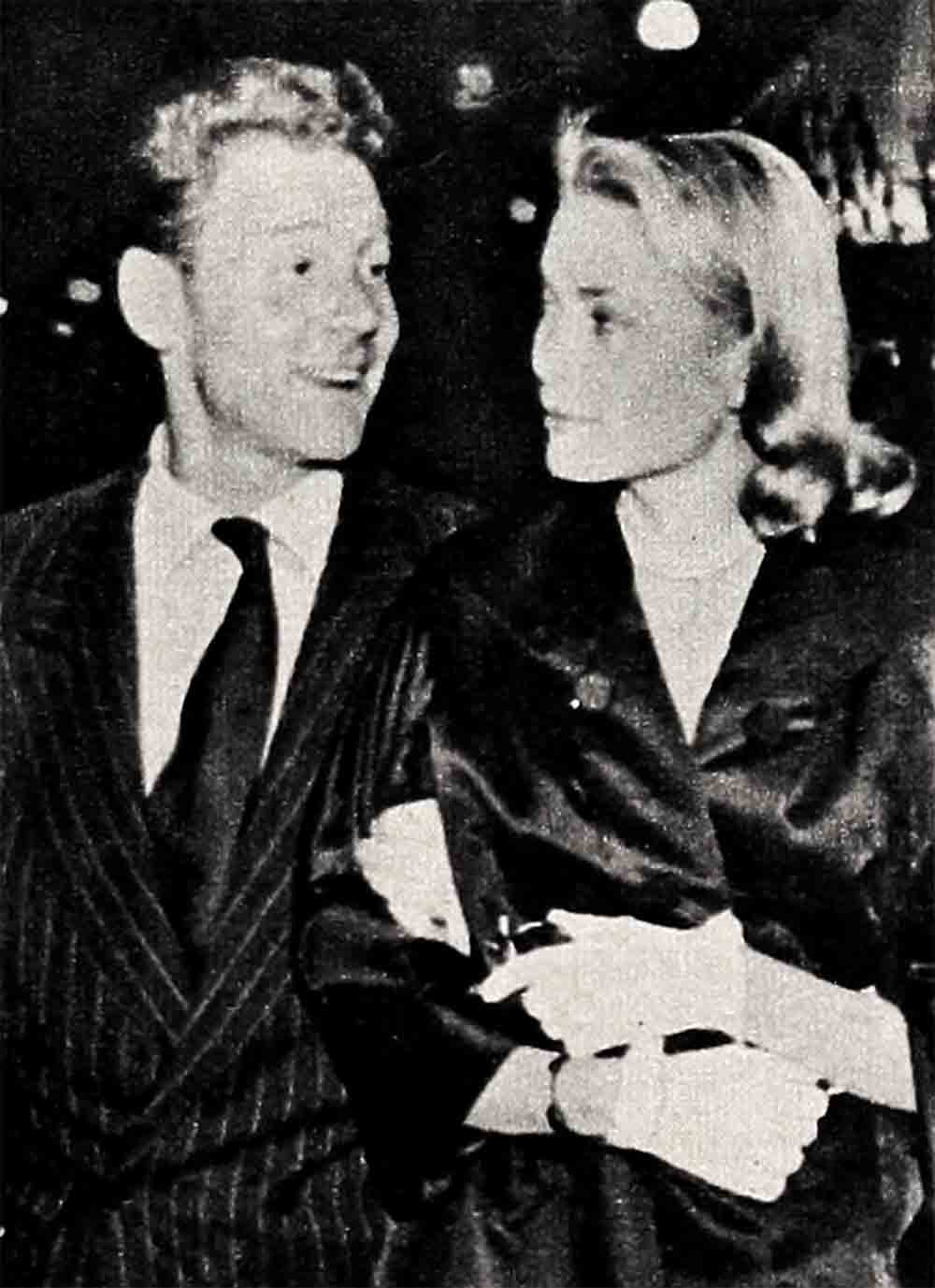
Naturally, the pressure for him to marry has been strong, but Rainier has exhibited an independence to match Grace’s own. He brought further shudders to his people by indulging in such danger-packed sports as road racing, lion-taming and skin-diving.
Travel appeared to be just another of his interests when he arrived in the United States last December, accompanied by his personal chaplain and advisor, The Very Reverend Father J. Francis Tucker. Father Tucker is one who knows American ways well, for he was born in Wilmington, Delaware, and served an Italian parish in Baltimore before being appointed counselor general of the Oblate Fathers of St. Francis of Sales and canon of Monaco’s Cathedral of the Immaculate Conception. He and the Prince have become firm friends, for Father Tucker brings to his task an Irishman’s wit and sociability.

Rainier, on his arrival, was asked the reporter’s stock question, “Are you wife-hunting?” and he gave it a stock answer, “I’m here as a tourist.” Because of Father Tucker’s background, there was a bit of speculation as to whether the Prince might have his eye on a du Pont heiress in Wilmington, but again there was a smiling denial. Asked if he intended to see Grace Kelly, whom he had met once before, he merely paid her a compliment and dismissed the subject. No one paid much attention when he accepted a private invitation for the Christmas holidays and apparently dropped from sight.
Only a few items in some newspapers fluttered a forecast of the great event to come, and they were heavily discounted when they appeared. If Prince Rainier succeeded in taking Miss Kelly to dinner, he was doing only what most of the men in America would like to do. As for the reports of romance—well, by this time everyone knew about elusive Grace. Besides, said the wise ones, that was a plot which had been overworked by everyone from Strauss to M-G-M musicals. It never happened in real life.
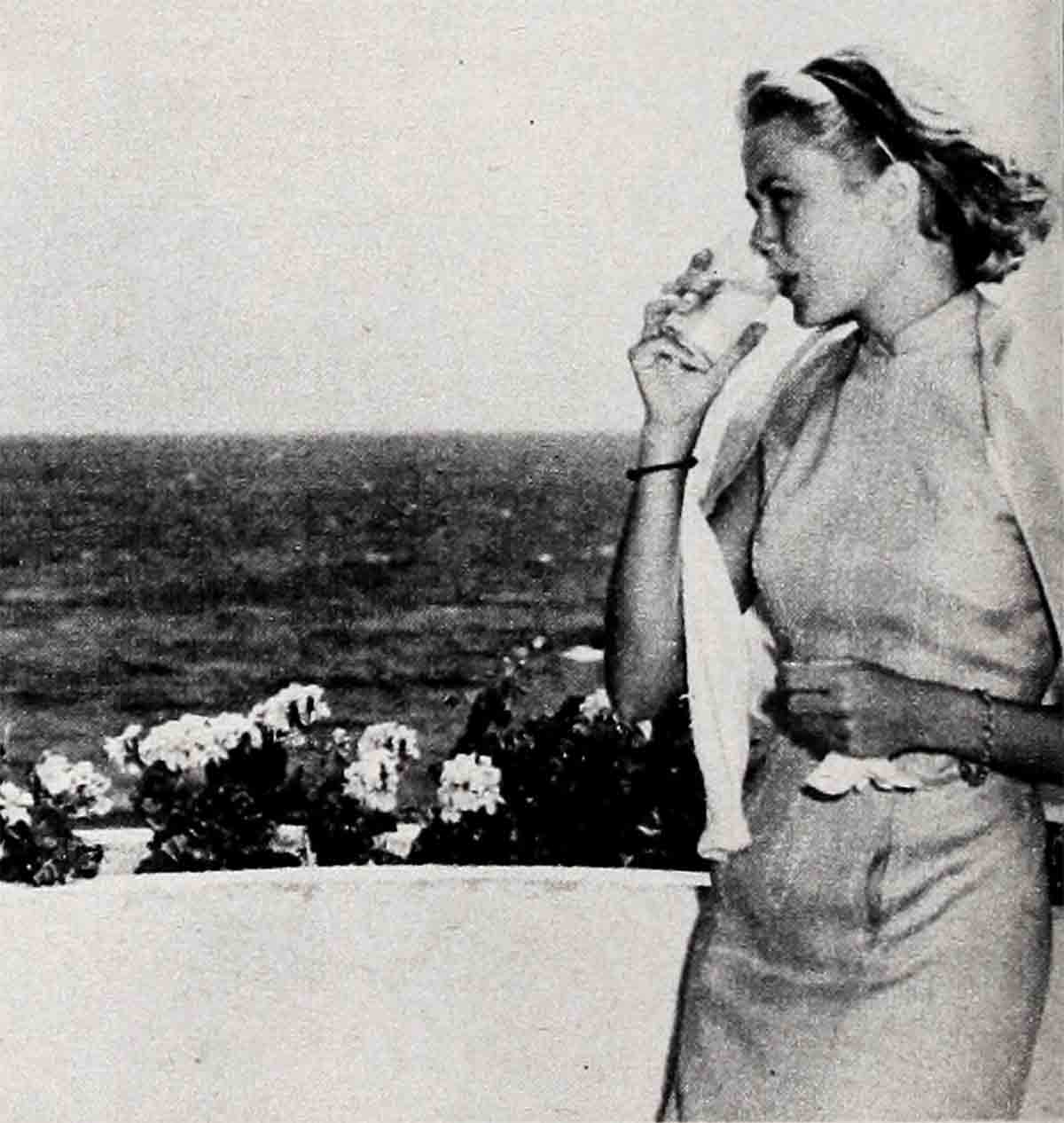
The first indication that the storybook tale was about to make history came from Mrs. Kelly, and in characteristic Kelly fashion. Mrs. Kelly, a beautiful blond ex-model, takes on no airs about her own achievements as a cover girl and a former instructor of physical education at the University of Pennsylvania. Neither does she remind anyone that her handsome, husky, silver-haired husband followed up the winning of his Olympic rowing championship by considerable night-school study which headed him toward conspicuous success after he borrowed $7,000 from his brothers to start his own contracting firm. While Mrs. Kelly mighthave remarked that John Kelly did the stone surfacing of the United Nations Buildings, she said, instead, when she called a friend, “Imagine, my daughter is marrying a prince!”
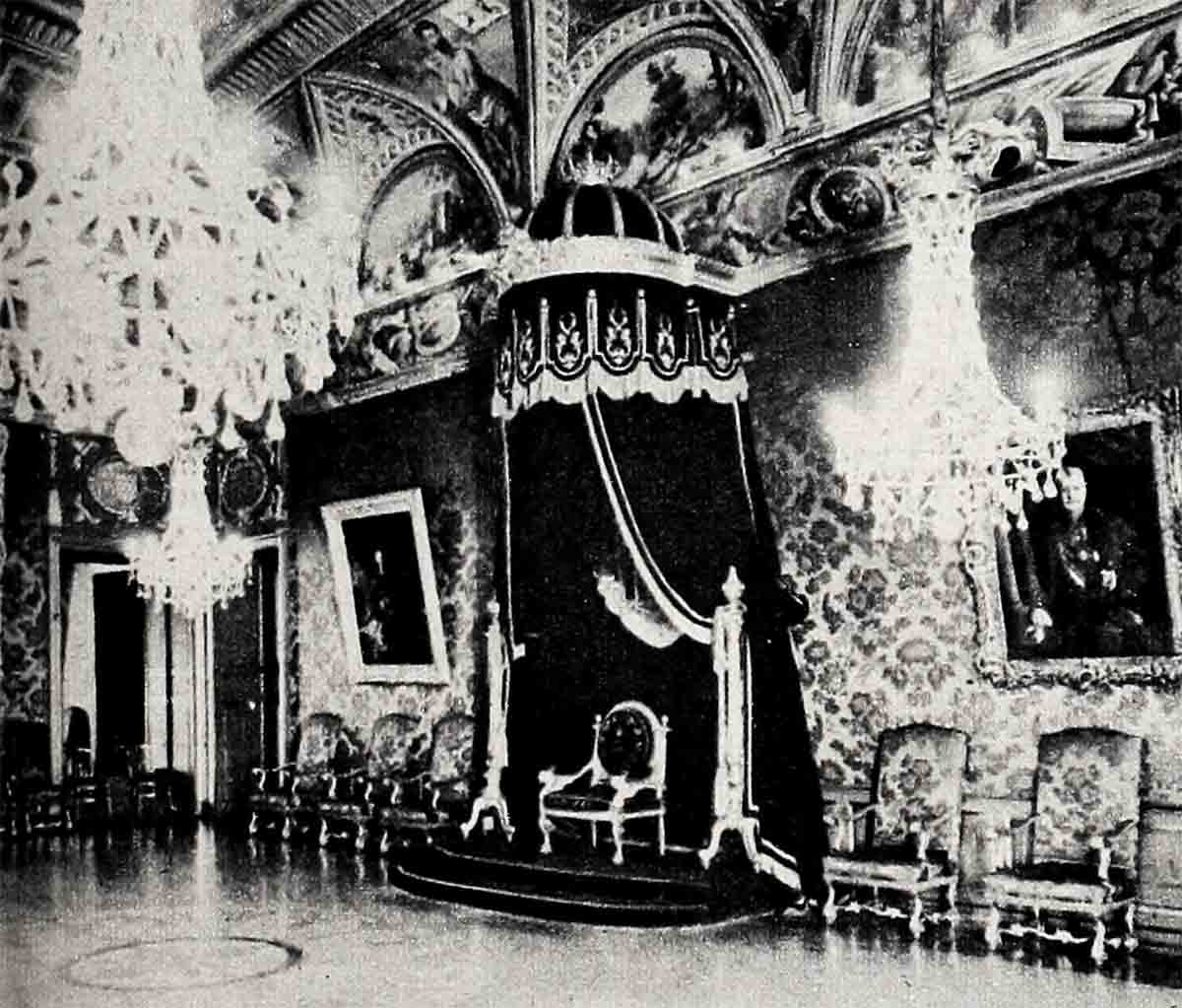
John Brendan Kelly also stayed right in character. When, from Monaco, the cables crackled, “His Serene Highness, Prince Rainier III of Monaco, is happy to announce his engagement to Miss Grace Kelly, daughter of Mr. and Mrs. John B. Kelly of Philadelphia,” big Jack clucked, “Those fellows over there jumped the gun. We were supposed to announce it at the identical time—at the luncheon.”
The luncheon, at the swank Philadelphia Country Club, was attended by the governor, the mayor and representatives of France, Monaco and the State Department. But gala as it was, it was dwarfed by the reception that the press gave the Kellys and the young lovers when they returned home.
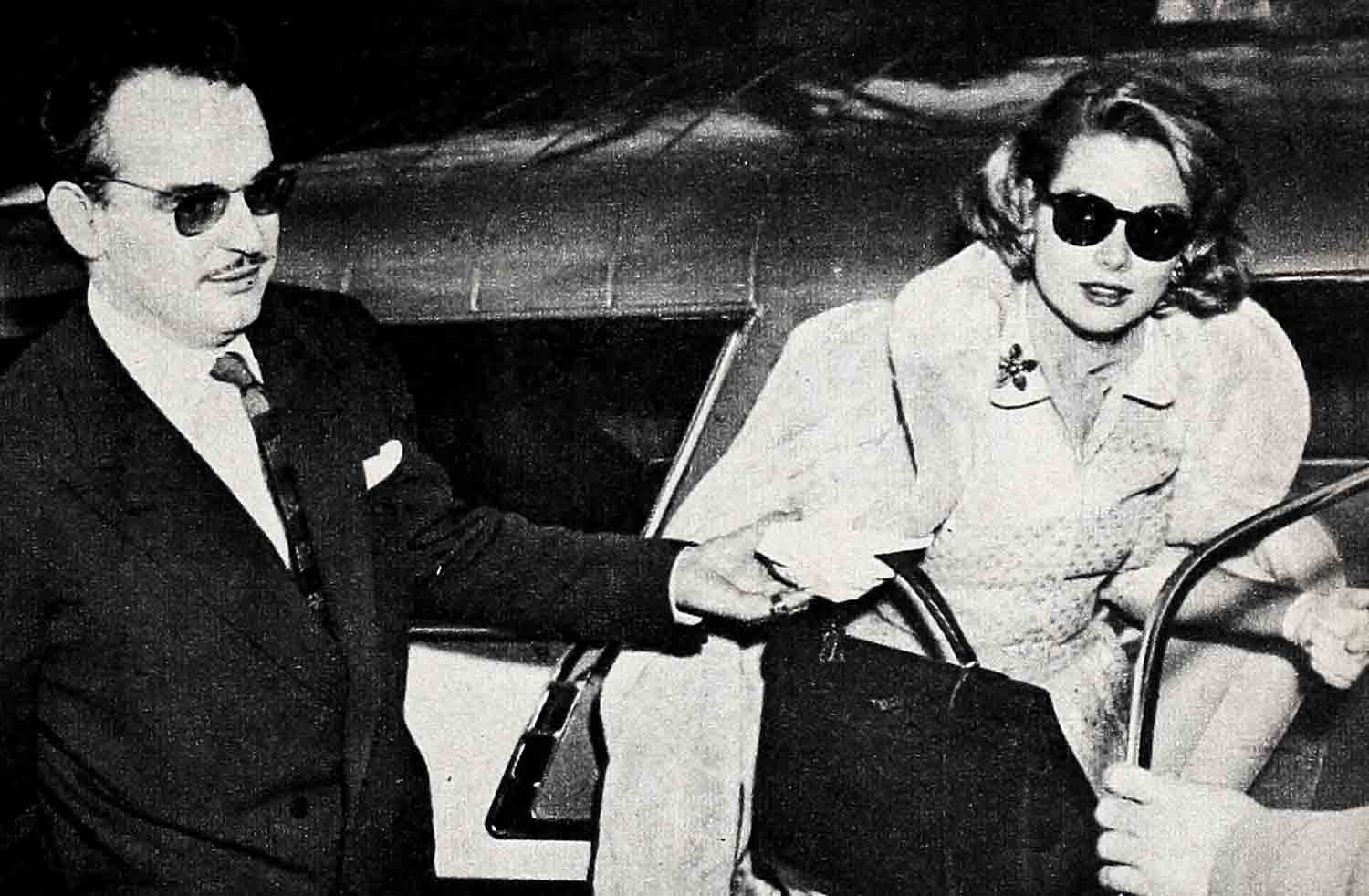
It took a flying wedge of her husky male relatives to get Grace and the Prince through the crowd at the door. “I darned near couldn’t get in myself,” said her father. “I had to sneak in through the basement.”
Even then, Lady Grace largely kept her own counsel. Only the barest, formal details of the match were revealed. The Prince had brought the engagement ring with him from Monaco. It fit Grace’s finger exactly. They didn’t yet know whether they would be married in Philadelphia or Monaco. To the Prince, it didn’t matter, but the Kellys indicated that they wanted to ask no exception to the rules of the Roman Catholic Church. They indicated they preferred that Grace, like any other girl, be married in her home parish.
But for all their intended reticence, the story was too good to keep and, bit by bit, the details came out.
Mutual friends, Mr. and Mrs. Russell Austin of near-by Atlantic City, told of the Prince’s romantic weekend. They had first met him, the Austins revealed, last summer in Monte Carlo. At a mention of Grace’s name, Rainier had got them tickets to the already-sold-out opening of the Casino. Later, he invited them to have cocktails at the palace, with himself and Father Tucker. They, in turn, had invited him to visit them “any time.” When he arrived in New York, Rainier let the Austins know he and his chaplain would like to spend Christmas at their home.
“After dinner,” said Mrs. Austin, “we all drove over to visit the Kellys.”
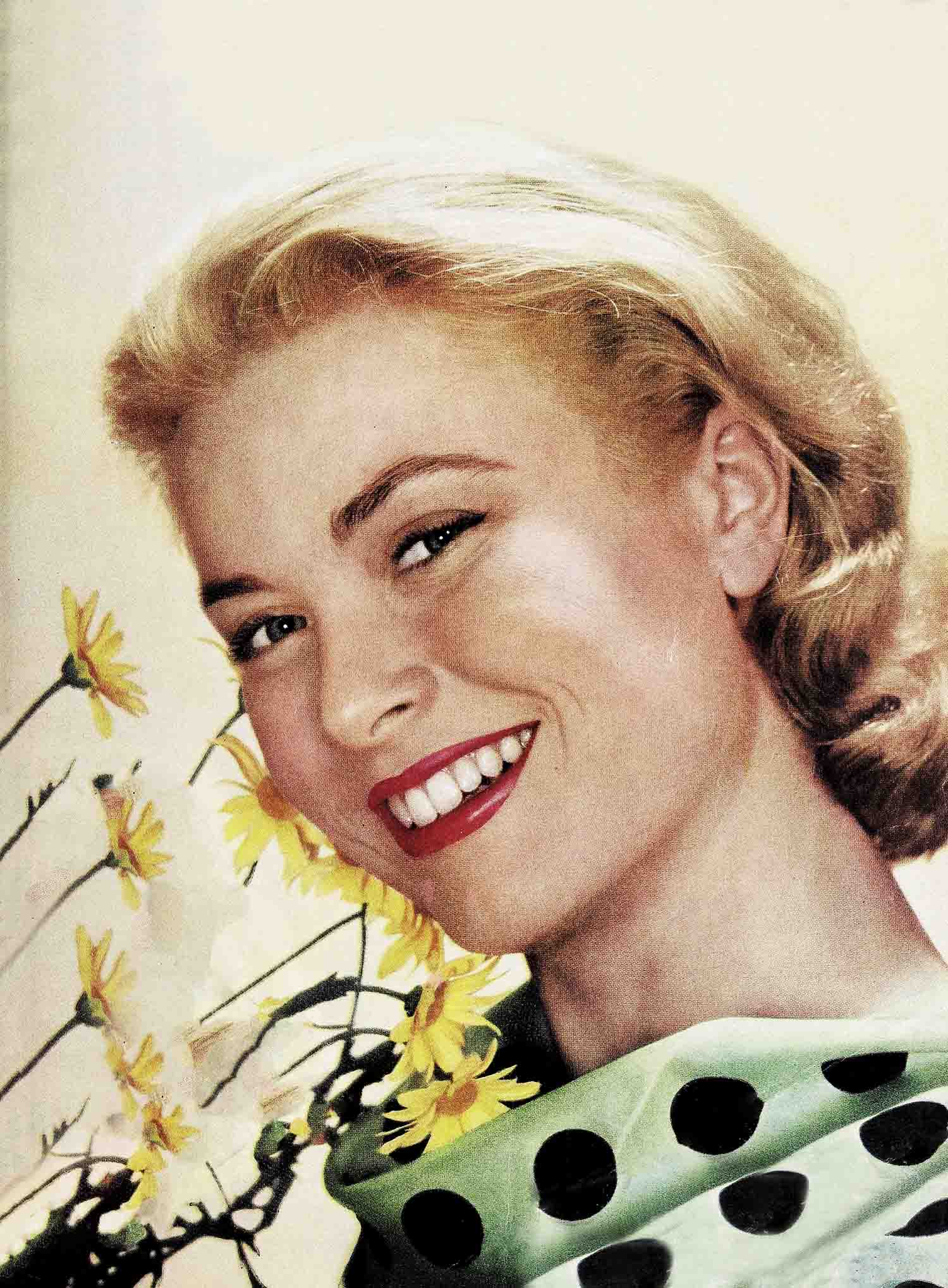
Just as if the Prince were any other nice young man, they joined the Kelly family in the basement recreation room. There was laughter and talk and the Prince showed no desire to leave.
“I expected him to stay just a little while and he stayed for hours,” said Jack Kelly, later. “Then I began to notice the way he and Grace were looking at each other. You couldn’t escape it. These two were in love.”
The Austins were worried about the icy roads. Father Tucker said he had to get back to Wilmington. The Prince didn’t budge. In the end, Mrs. Kelly extended the invitation any mother who had a big house and plenty of guest rooms would issue under such circumstances. She asked Rainier to stay overnight. While she prepared a guest room, Jack Kelly drove Father Tucker to the train and the Prince and Grace went over to her sister Peggy’s house to have a late snack—and a few minutes of privacy en route. The next day, the Prince drove Grace back to New York to keep an appointment.
But it wasn’t long before he was back in Philadelphia. “My father knew his intentions before I did,” said Grace. “He asked for my hand.”
When he did, Rainier got some straight talk from Jack Kelly. “I asked him,” said Mr. Kelly, “just what kind of a husband he intended to be. I told him we didn’t care a thing about his titles, or his being a prince. It was the man himself who mattered to us. So he and Father Tucker told me all about the things he wants to do and I liked what they had to say.”
People had a preview of what the future Her Serene Highness, Princess Gratia Patricia of Monaco may be like when, the night after the engagement had been announced, escorted by the Prince and accompanied by her parents, she attended the Monte Carlo Ball at the Waldorf-Astoria. Her gown was a white faille creation by Dior, ethereal and lovely. Her flowers were white orchids. And she looked just exactly like all her admiring audience always has thought her to be—every inch a princess.
THE END
It is a quote. PHOTOPLAY MAGAZINE APRIL 1956




